- From Faith Current: “The Sacred Ordinary: St. Peter’s Church Hall” - May 1, 2023
- A brief (?) hiatus - April 22, 2023
- Something Happened - March 6, 2023
[Update August 2013: I just found this elegant little video from a group trying to discourage music piracy. It’s Beatles-authorized, and makes the point that “[l]oving The Beatles is a shared experience.” And I’d add a sweet, life-affirming one, too. How many of those do we have anymore? That’s why we do Dullblog.]
As an admitted collector of Beatle bootlegs, you might think that I have a free-and-easy attitude when it comes to downloading music. But I don’t, and why I don’t was expressed very nicely by Niall O’Conghaile over at Dangerous Minds:
“I may be wrong, but I believe that we’ll never see another David Bowie or another Prince or another Beatles again. Not because talents such as there’s aren’t out there, but because the financial system that allowed those talents to flourish, and that in turn made the consumers used to obtaining a high level of art on a regular basis, are gone…The public WANTS another Beatles/Bowie/Prince, an iconic, genuinely brilliant artist or band, for and of our age, yet to me the public doesn’t seem willing to pay for that.”
This comment was expressed in the context of an even better original post by David Lowery of Camper Van Beethoven, taking an NPR commentator to task over having bought only 15 CDs in her lifetime (while having 11,000 tracks ripped to her iPod). You should read Lowery’s post; it’s really eloquent—and it’s equally applicable to people in other media. What happened first in music is now happening in print; personally, I’d guess that my books have been pirated hundreds of thousands of times, if not more.
This hurts me in two ways: first, the obvious one of not getting paid, and second, it keeps my sales figures artificially low, so that publishers do not believe that I have a fanbase big enough to bet on. Published in 1969, the wonderful Tolkien parody Bored of the Rings sold consistently throughout the 70s, 80s, and 90s. Yet my parodies all follow the same profile: massive initial sales comparable to Bored‘s 70s heyday, followed by a decade of trickle. Could my books suck? Sure. Could people view them as disposable, and that initial burst make its way to used bookstores, where others read ’em? Sure. But then why did I just get 14,700 hits on the Google search “Barry Trotter free pdf download”? Ten years after I wrote the book?
The Beatles and Piracy
What would’ve happened to our Fabs if every LP they released sold great for a week, then moved to the shadow economy? For one thing, they would’ve recorded every album as quickly as the first one. Brian would’ve been at the mercy of the record company, and you better believe EMI/Capitol would’ve meddled; “How Do You Do It?” would’ve been only the beginning. And the guys would’ve toured constantly—ten years of Beatles for Sale-type filler. They simply wouldn’t have had the time, money, power, or artistic confidence to become the group we all love. EMI would’ve survived; J/P/G/R would not have. There’s a name for John Lennon without fame and fortune, and it’s Charles Whitman.
Like rock and roll in 1963, I am particularly prone to being pirated: I write funny books read by 12 to 24-year-olds, in a form (parody) which most people don’t think is “real” writing. But the larger point remains; just like many musicians, I spent 20 years learning my craft, only to become massively popular, and broke. Without the money to walk away from deals, people like myself become MORE mistreated by the big, bad corporations that consumers think they’re hurting by getting something for free.
It was only fans paying for Beatles songs that made the Beatles what they were, and what they are today.
So how could I ever collect Beatles bootlegs? Like most fans, I prefer legitimate releases. From 2003-11, I listened to the mono Pepper digipak I bought down in Greenwich Village; since 2011, I’ve listened to the Apple release. My Great Dane BBC set only gets played if it’s material not on Live at the BBC. And so forth. I think I’m pretty standard in this regard.
So the ethical thing would be to wait for legitimate releases, as long as it took, right? The situation is complicated by the following: it was the commercial pressure exerted by things like Artifacts and the Unsurpassed Masters series that caused Apple to get off the stick and give us Anthology. Similarly it was Great Dane that caused Live at the BBC. And it was demonstrated fan interest—the unquestionable presence of a paying market—that caused Jeff Jones to win the day and get the mono/remasters done.
But as Niall wrote, there aren’t going to be future mega-acts with that kind of paying fanbase able to put pressure on corporations to release material. And it may even be happening with The Beatles: last night, for the umpteenth time, I was playing Beatles Rockband and wishing they’d offer more songs. But they aren’t planning to; sales of the game just weren’t that strong. For a moment I thought, “Let’s Kickstart it!” but then I realized that was probably wishful thinking. Breaking the songs into tracks, remixing them, doing the modeling and animation…
Execution aside, The Beatles had the right idea with Apple in 1968. One of the projects I’m working on is meant to remake the model for print humor, but it will only really work if there’s sufficient “group consciousness.” This is the point of Dullblog for me: creating community. Because sooner or later, preserving the Beatles’ legacy is going to fall to the fans ourselves, and the amount of respect we show now is the best training for that job then.
Do I want to hear every note of every track of every session of every LP? Yes. And I don’t mind paying for it, either.


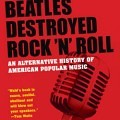

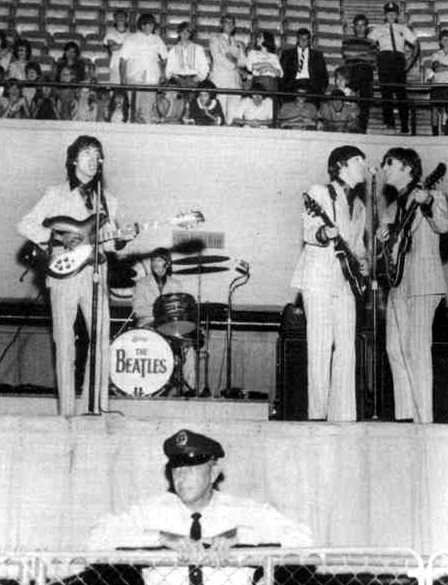
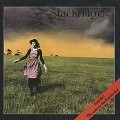
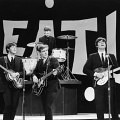
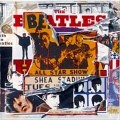

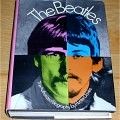


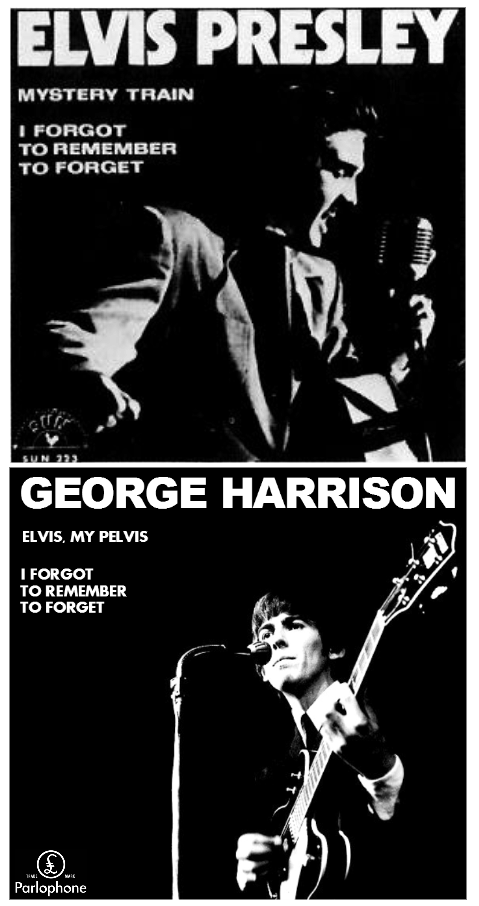
I sold a short humor piece to an online magazine, got $50.00 for it. I read about writers selling short humor pieces in the 1920s for $75.00-$100.00, when that money went alot farther (further? father?). Alot of other pieces I’ve written have gone online to non-paying sites. Wonderful exposure, but my socks go unmended.
On one hand, if today’s circumstances existed in 1963, would the Beatles need Parlophone? Would they build their fanbase at the cavern, have Mal Evans drive them around as they post live videos and songs online? Maybe have the kids contribute through paypal? Record their songs using free software? Would it have been possible to conquer the USA this way? Somehow I doubt it.
I try to imagine the Beatles working day jobs and I just can’t. I seem to recall Paul had a delivery job briefly, Ringo trained to create blueprints? and George trained as an electrician, John apparently never had a job. (I simply can’t imagine Lennon punching a clock.)
In 1963, the Beatles needed George Martin, needed Parlophone, needed the recording studio.
A modern day Beatles would be expected to be entrepreneurs in addition to artists, rather than priding themselves on their ignorance of the lowly business side of things. Could they have pulled it off?
Because the Beatles hit when I was a small child, I took their success for granted. I just assumed they got together, wrote some brilliant tunes, and success was inevitable. It wasn’t until years and years later that it dawned on me how unlikely their success truly was, that if one little element of their story had been ill-timed or missing, none of it would have happened. (Like all the elements being necessary for a habitable planet, not too cold or too hot.)
As I studied the careers of American artists like the Everly brothers, Buddy Holly, Gene Vincent, Eddie Cochran, I saw all the pitfalls that the Beatles avoided. There were no bad overdubs of strings or barbershop background vocals on their songs, like there was on Buddy and Eddie’s records (Listen to what was done to Eddie’s “Hallelujah I Love Her So” by Snuff Garret or Buddy’s “Last Night” overdubbed by Norman Petty to get an idea of how American artists surrendered creative control) And the Beatles never had to contend with the draft, like the Everlys or (gulp!) Elvis.
I don’t think the Beatles would have made it in today’s environment. And even if they had conquered every challenge, someone from TMZ would have released footage of one of Lennon’s “knee tremblers” or Paul and George smoking pot on the set of “HELP!” and that would have been the end of that.
– Hologram Sam
Michael, you put your finger on the central problem: when artists can’t make enough money from what they create to focus on creation, much art will wither or be less than it could be. Of course any artist has to work hard. But if working hard and getting something good into the marketplace — and having it succeed in terms of people wanting it — doesn’t translate into financial reward, artists are going to have to concentrate on day jobs. And knowing that people are stealing your work has to start grinding down your spirit.
I went to a play in Chicago a few months ago and saw a guy in the lobby wearing a T-shirt that read “Copyright infringement is your best entertainment value.” I wanted to go up to him and say “Do you realize that this play probably wouldn’t have been published or performed without copyright protection?” And I wish I had said it, despite my dislike of public confrontation.
As to bootlegs, I think there’s an enormous difference between buying/trading unreleased material and stealing/buying legitimately released material that’s been pirated. Piracy is straight-up theft. I feel strongly about that because I have friends who make music and write.
Some determined bands and writers are going to survive in any climate, but we’ve created an inhospitable environment that’s going to stunt a lot of growth. And it’s unclear to me what we can do about it, other than be willing to pay for what we enjoy and urge others to do the same.
This bit of info might have some impact on the swerve of the piracy discourse:
http://www.rawstory.com/rs/2012/03/15/american-isps-to-launch-massive-copyright-spying-scheme-on-july-12/
There’s a name for John Lennon without fame and fortune, and it’s Charles Whitman.
I think John without the fame or fortune would have been Alfred Lennon… charming guy with some musical and comedy skills who would have washed dishes on a merchant ship; keeping everyone laughing and entertained, the most talented unknown in the world. Maybe he would have met an untimely end at the hands of a real tough guy who took offense at a Lennon witticism. I don’t see him climbing any towers like Charles. I could be wrong, of course. John was certainly full of surprises.